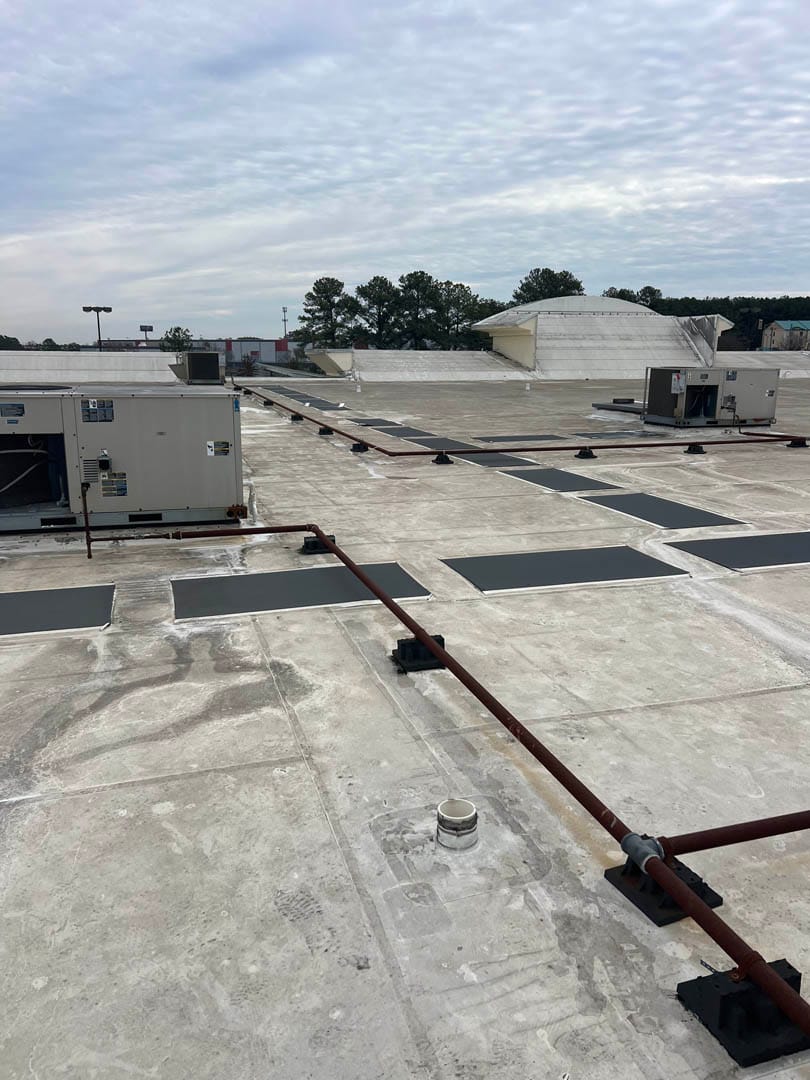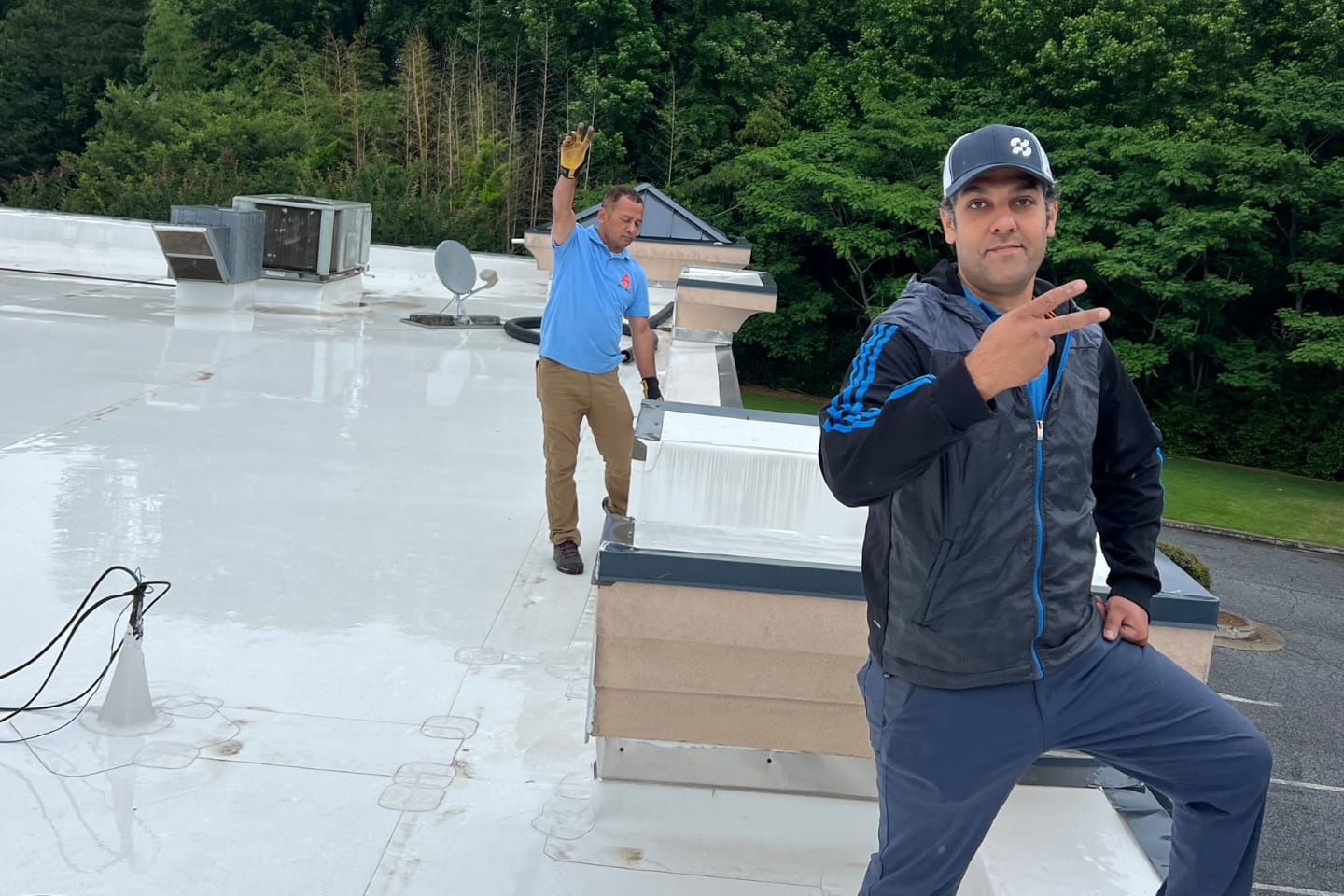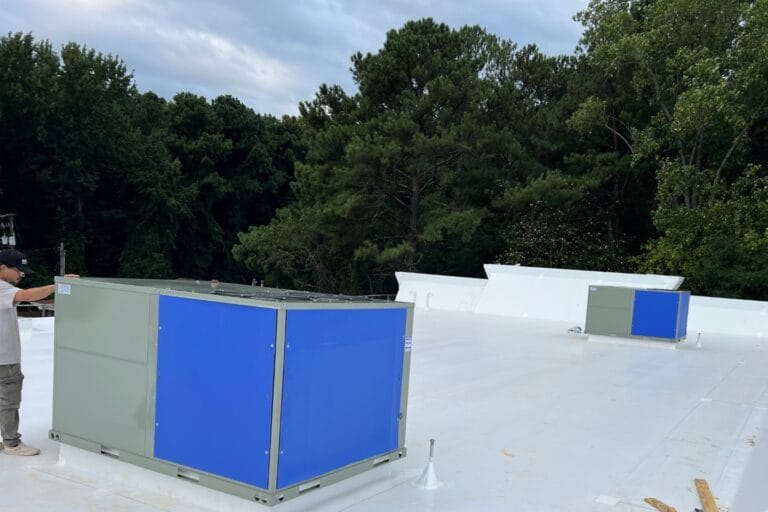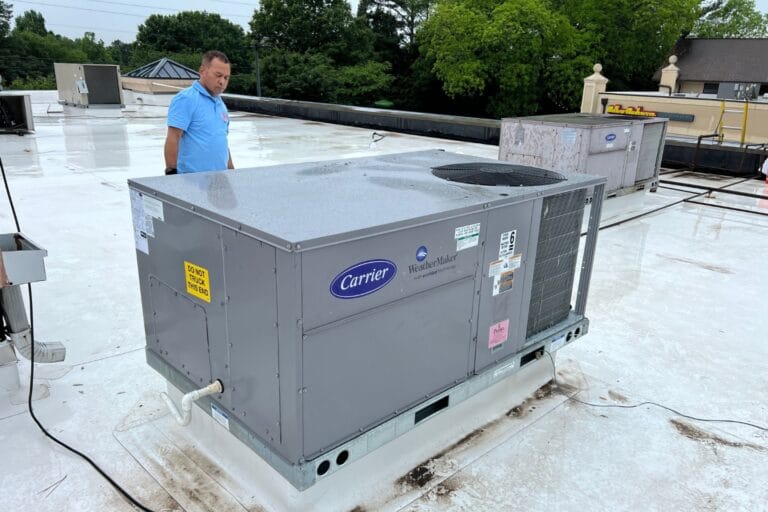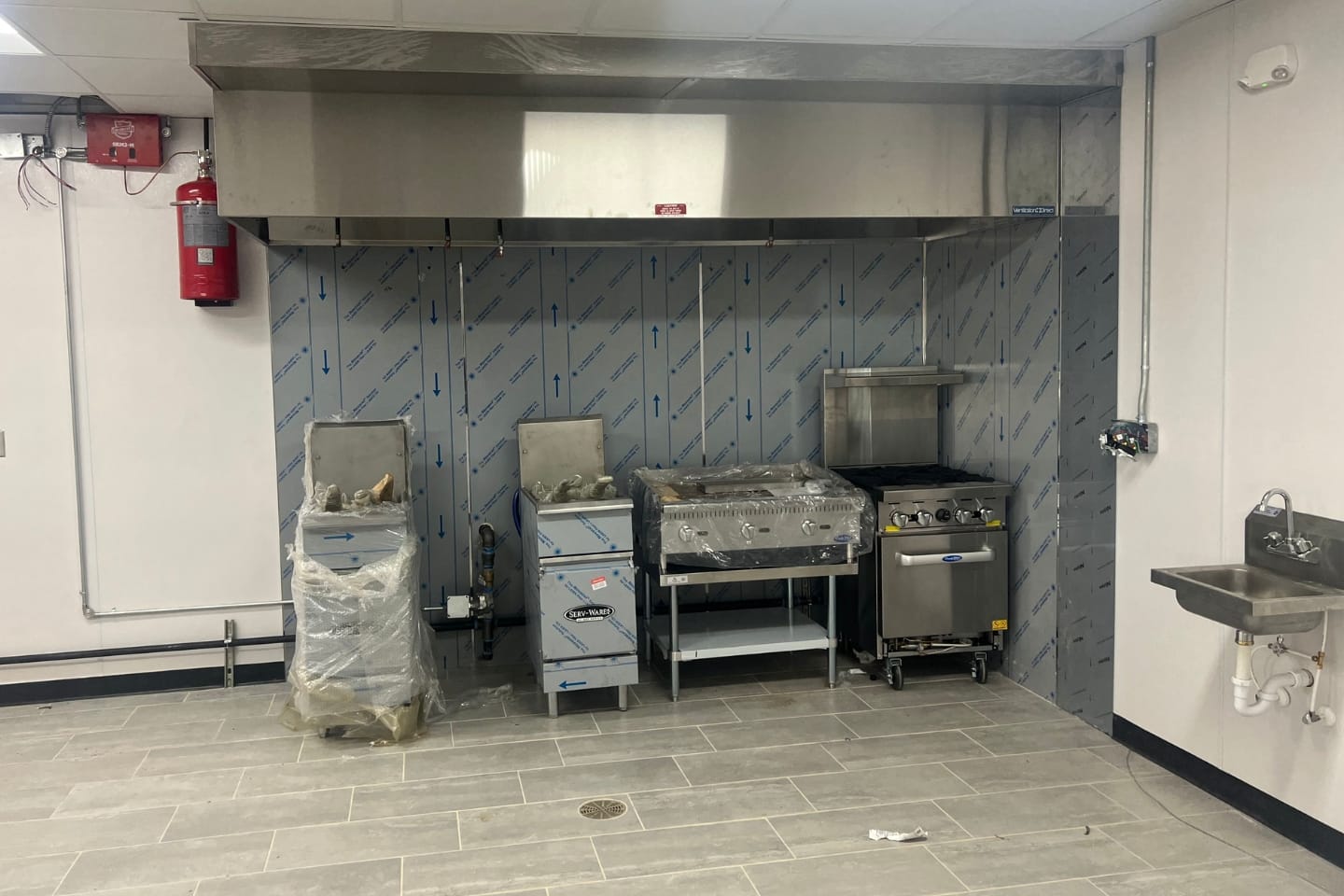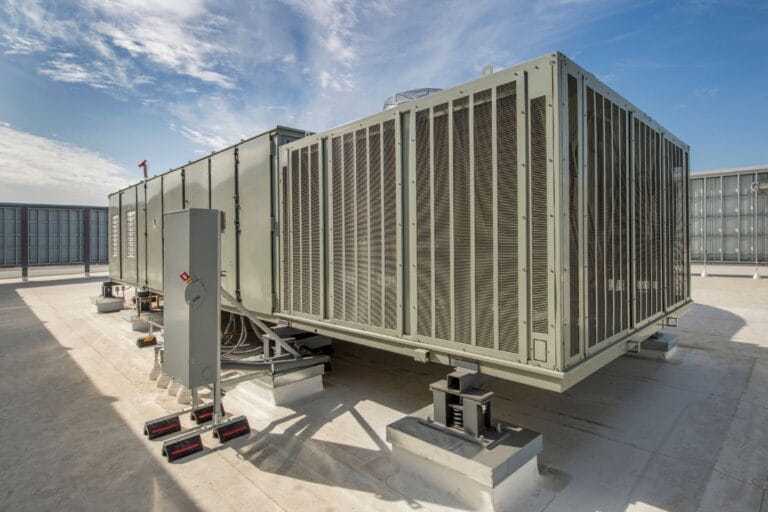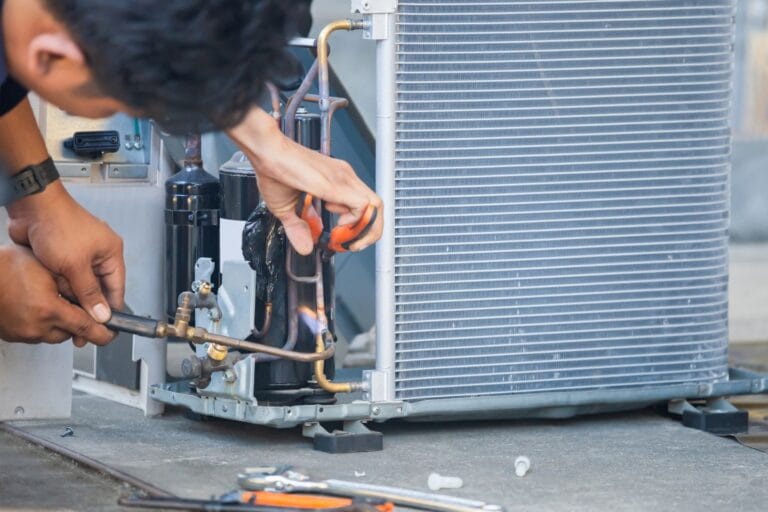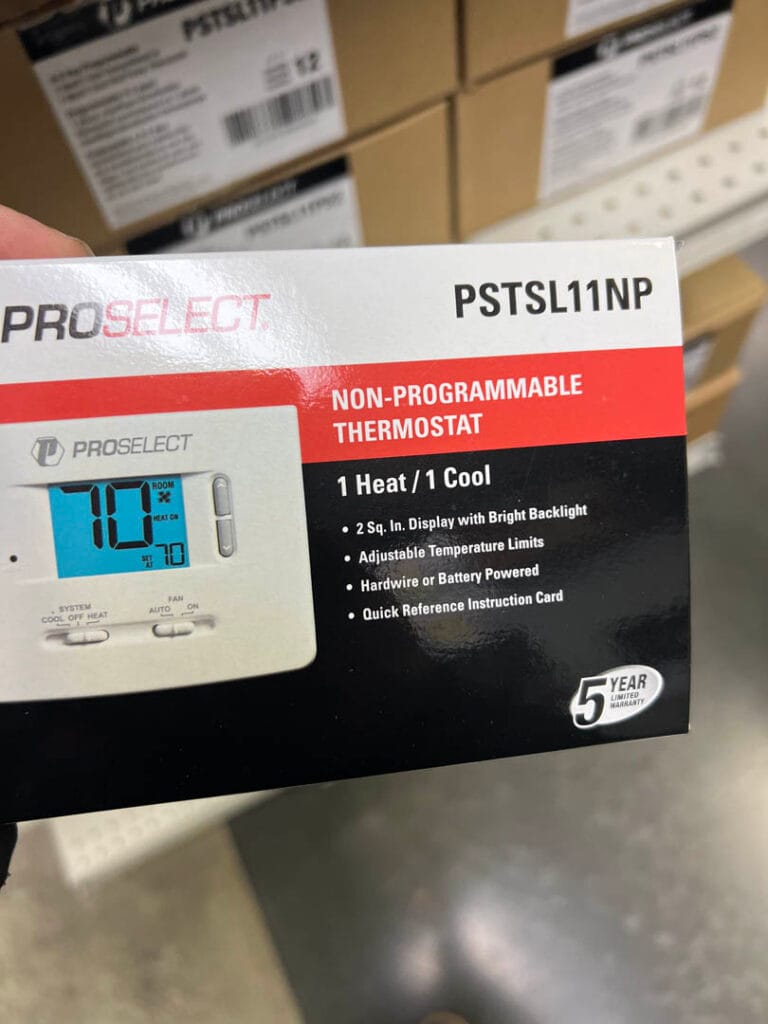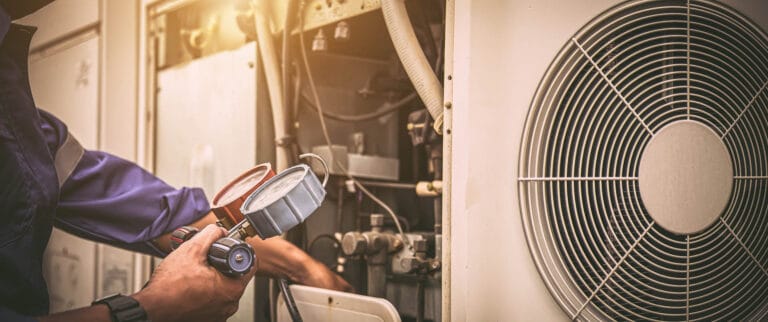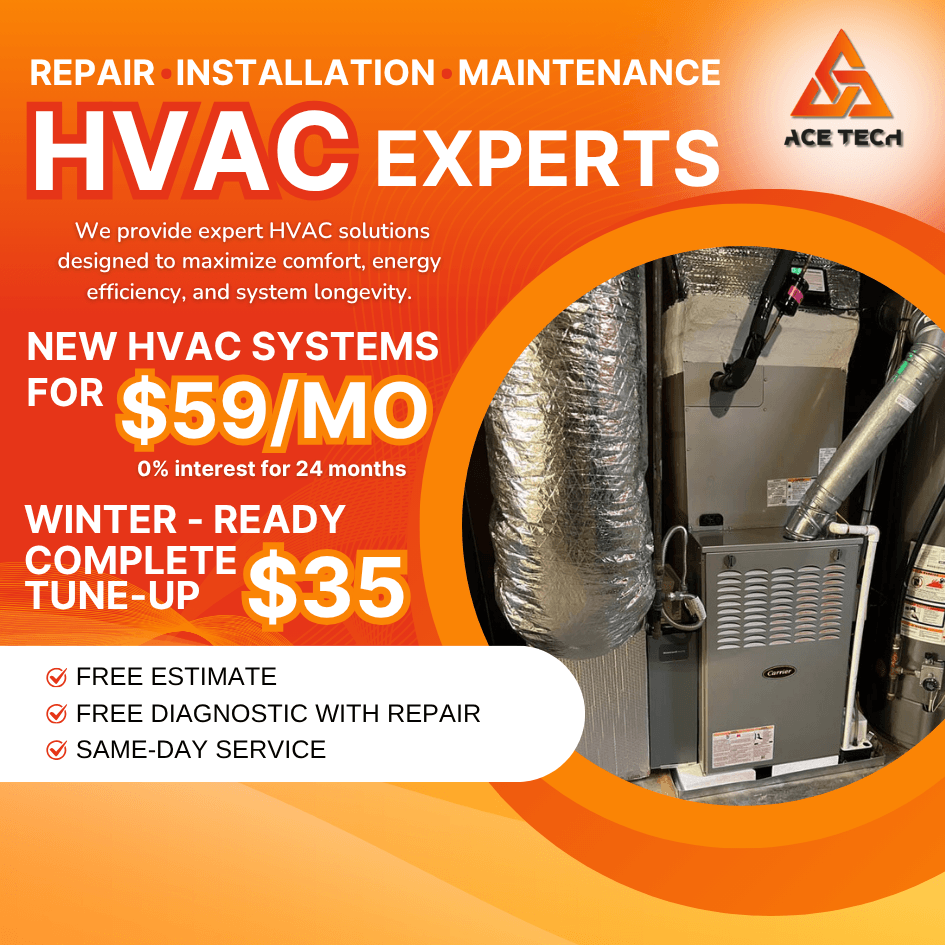Frequently Asked Questions
What are the benefits of regular commercial HVAC maintenance?
Regular commercial HVAC maintenance can enhance energy efficiency, prevent breakdowns, and extend the lifespan of equipment, ensuring reliable climate control for businesses.
How much does a commercial HVAC maintenance plan cost in Duluth GA?
The cost of a commercial HVAC maintenance plan in Duluth, GA varies depending on the size of the facility, the number of units, and the level of service required. Ace Tech offers customized maintenance plans starting at $99 per month.
How can I extend the life of my commercial HVAC system?
Extending the life of your commercial HVAC system can be achieved through regular maintenance, such as cleaning filters, checking refrigerant levels, and scheduling tune-ups, which can help improve energy efficiency and prevent costly breakdowns.
What are the signs that my AC needs maintenance?
Signs your AC needs maintenance include reduced airflow, unusual noises, insufficient cooling, and higher energy bills. Regular maintenance can help identify and address these issues before they become more serious problems.
What maintenance tasks extend the life of an arcade AC system?
Maintenance tasks that extend the life of an arcade AC system include regular cleaning, filter changes, refrigerant level checks, and inspections to identify and address any issues before they become major problems.
What is included in a commercial HVAC maintenance plan in Duluth GA?
A commercial HVAC maintenance plan in Duluth, GA typically includes regular inspections, filter changes, system tune-ups, and preventative maintenance to ensure optimal performance, energy efficiency, and extended lifespan of the HVAC equipment.
What are common HVAC maintenance tasks?
Common HVAC maintenance tasks include regularly cleaning or replacing air filters, inspecting and cleaning the condenser coils, lubricating moving parts, and checking the refrigerant levels and thermostat settings to ensure optimal system performance.
How often should I schedule HVAC maintenance?
The recommended frequency for scheduling HVAC maintenance is typically twice a year, once in the spring and once in the fall, to ensure optimal performance and energy efficiency of the system throughout the year.
What are the costs of HVAC maintenance plans?
The costs of HVAC maintenance plans can vary depending on the size of the system, the services included, and the frequency of maintenance visits. Prices typically range from $100 to $500 per year for a commercial HVAC maintenance plan.
How can I identify HVAC system issues?
Identifying HVAC system issues can be done by monitoring unusual noises, poor airflow, inconsistent temperatures, and increased utility bills, which may indicate problems requiring professional inspection and maintenance.
What benefits come from regular HVAC check-ups?
Regular HVAC check-ups can provide improved energy efficiency, extended equipment lifespan, and fewer breakdowns, ensuring optimal performance and cost savings for commercial facilities.
How does HVAC maintenance improve energy efficiency?
Regular HVAC maintenance helps improve energy efficiency by ensuring optimal system performance, reducing air leaks, and maintaining clean filters, all of which contribute to reduced energy consumption and costs.
What tools are needed for HVAC maintenance?
The tools needed for HVAC maintenance typically include a multimeter, refrigerant gauges, coil cleaning brushes, a vacuum pump, and a refrigerant recovery system to ensure proper system operation and efficiency.
How can I find reliable HVAC maintenance services?
Finding reliable HVAC maintenance services involves researching local providers, checking their experience, licensing, and reviews, and considering companies that offer tailored maintenance plans to meet your commercial needs.
What should I expect during an HVAC inspection?
During an HVAC inspection, you can expect a thorough evaluation of your system's components, including checking refrigerant levels, testing thermostat functionality, and identifying any potential issues that may require maintenance or repairs.
How do I choose an HVAC maintenance provider?
Choosing an HVAC maintenance provider involves considering their experience, expertise, customer reviews, and availability of 24/7 emergency services to ensure reliable and efficient maintenance for your commercial HVAC system.
What are the risks of neglecting HVAC maintenance?
Neglecting HVAC maintenance can lead to increased energy costs, frequent breakdowns, reduced system lifespan, and decreased indoor air quality, posing risks to business operations and occupant comfort.
How can I prepare for an HVAC service visit?
Preparing for an HVAC service visit involves clearing the area around the unit, ensuring easy access, and having relevant documentation on hand to assist the technician in diagnosing and addressing any issues efficiently.
What is the average lifespan of HVAC systems?
The average lifespan of HVAC systems is typically 15 to 20 years with proper maintenance, though their longevity can vary depending on factors like system type, usage, and maintenance practices.
How does weather affect HVAC maintenance needs?
Weather can significantly impact HVAC maintenance needs, as extreme temperatures, humidity, and precipitation can strain the system and increase the frequency of required maintenance to ensure optimal performance and energy efficiency.
What are the signs of an inefficient HVAC system?
Signs of an inefficient HVAC system include uneven cooling or heating, increased energy bills, inconsistent temperatures, and unusual noises or odors from the system. Regular maintenance can help identify and address these issues.
How can I reduce HVAC maintenance costs?
Reducing HVAC maintenance costs can be achieved through regular preventive maintenance, such as timely filter changes, coil cleaning, and system tune-ups, which can improve energy efficiency and extend the lifespan of your equipment.
What is included in a typical HVAC service plan?
A typical HVAC service plan includes regular inspections, filter changes, cleaning, and tune-ups to ensure optimal system performance, energy efficiency, and extended equipment lifespan.
How can I ensure my HVAC system runs efficiently?
Ensuring your HVAC system runs efficiently involves regular maintenance, such as cleaning filters, inspecting ducts, and scheduling professional tune-ups to optimize performance and energy usage.
What are the best practices for HVAC upkeep?
The best practices for HVAC upkeep include scheduling regular maintenance, changing air filters, and addressing any issues promptly to ensure optimal energy efficiency and system longevity.
How does regular maintenance prevent HVAC breakdowns?
Regular maintenance helps prevent HVAC breakdowns by ensuring all components are functioning properly, identifying and addressing minor issues before they escalate, and keeping the system clean and well-lubricated for optimal performance.
What are the environmental benefits of HVAC maintenance?
The environmental benefits of HVAC maintenance include improved energy efficiency, reduced greenhouse gas emissions, and extended equipment lifespan, contributing to a more sustainable environment.
How can I extend my HVAC systems lifespan?
Extending the lifespan of your HVAC system can be achieved through regular maintenance, including cleaning filters, scheduling tune-ups, and addressing issues promptly to prevent major breakdowns and prolong the system's efficiency and longevity.
What common mistakes should I avoid in HVAC maintenance?
Avoiding common HVAC maintenance mistakes is crucial to ensure optimal system performance. This includes neglecting regular tune-ups, using the wrong refrigerant, and failing to address issues promptly, which can lead to decreased efficiency and costly breakdowns.
How do I know when to replace my HVAC system?
Knowing when to replace your HVAC system involves considering factors like its age, efficiency, and performance. Generally, systems older than 15-20 years or ones that require frequent repairs may need replacement to ensure optimal comfort and energy savings.
